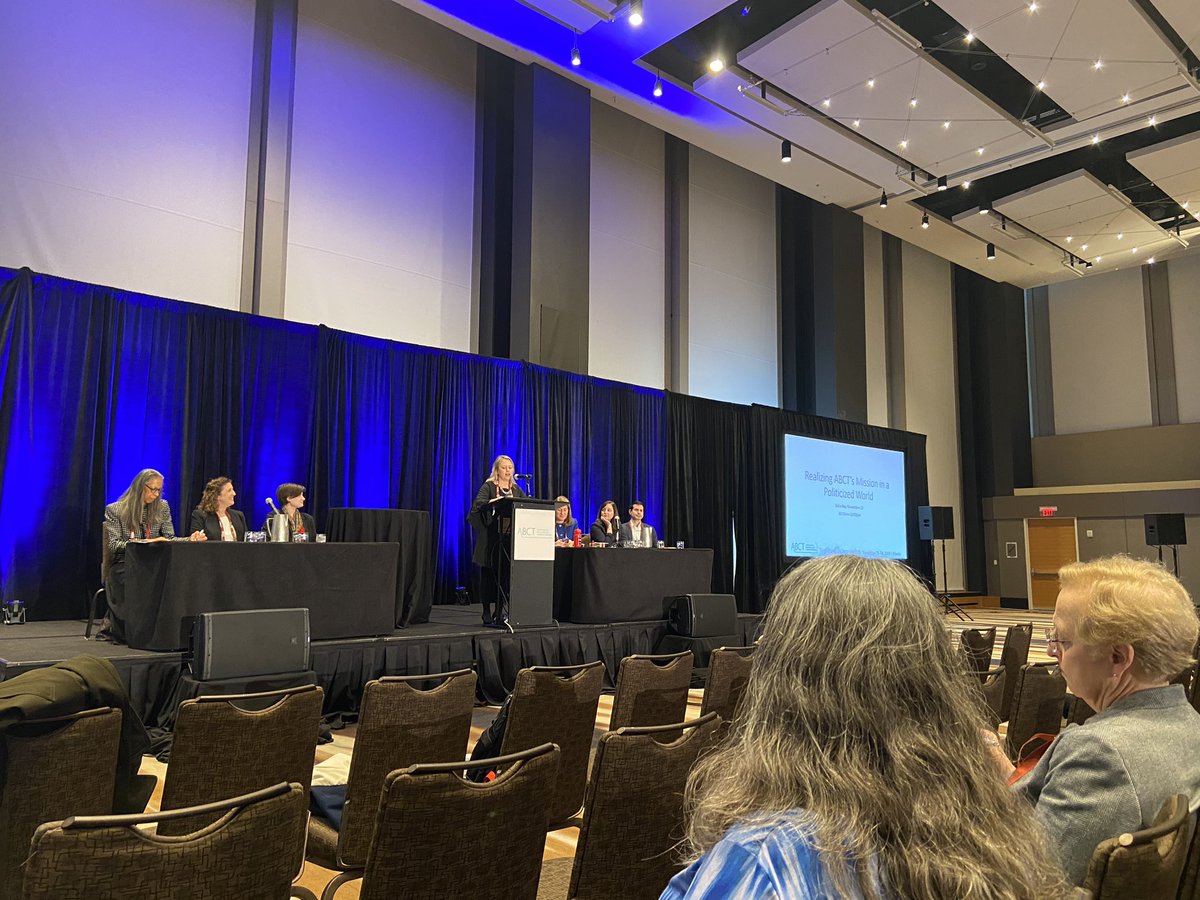Important panel w @drbufka this morning: “Realizing @ABCTNOW’s mission in a politicized world.” Been thinking about it all day and wanted to share some of the points I’m taking with me from this excellent interdisciplinary panel.
First, they reviewed ABCT’s mission statement ( https://bit.ly/2pGtNoe )—useful!">https://bit.ly/2pGtNoe&q... Overall message of panel: we are scientists, and we are experts on human behavior, but we have to know how to communicate science effectively to legislators and to the general public. #scicomm
Dr Brandon Gaudiano provided some basics about how people form opinions (political & otherwise). 1. They base them on beliefs they already have. 2. They might change opinions based on what trusted sources say. 3. They don’t change opinions when nothing challenges them.
So as psychologists, and as ABCT members, we should/can speak up about the science of mental health, human well-being, and #CBTworks as it applies to legislation on the local and federal levels.
Reach out to your representatives about relevant legislation! Email, call, or drop-in to say “hi, I’m a psychologist and an expert in (fill-in expertise here). Let me know if I can answer any questions about this issue for you!” Or, send them info on relevant literature.
(Side note: Do you know your representatives? Check out https://openstates.org/ ">https://openstates.org/">... for that info! And for updates on your local introduced bills/legislation.)
If you do provide politicians with info about specific research, make it short. Don’t send articles. Send summaries or bullet points. Do the work for them (because they probably won’t  https://abs.twimg.com/emoji/v2/... draggable="false" alt="🤷" title="Shrug" aria-label="Emoji: Shrug">).
https://abs.twimg.com/emoji/v2/... draggable="false" alt="🤷" title="Shrug" aria-label="Emoji: Shrug">).
If you talk to politicians (or anyone) and want to sway their opinion, you should start with understanding their current position, agenda, values. Make sure you step into their framework and use their language—don’t use jargon or focus only on your personal agenda.
History of law in US shows us that science can be influential in legal battles. Courts have prioritized opinions of scientific/medical communities in some decisions. So even if your legislators don’t listen, still important to communicate science broadly!
Therefore, spreading science on social media can be helpful! Again, be concise. Start with main point, then talk about why it’s important or why it matters, then provide evidence. Tag relevant people (on social media). Retweet others’ science. #SoMePsychs
“If you’re not at the table, then you’re on the menu.” It’s important to speak up even if only to say “what you’re saying isn’t based in science.” Don’t let incomplete science keep you from advocacy. We need to come to the table to fight for #psychscience and for #mentalhealth.
Ok. Long thread over! Thank you to @drbufka and #ABCT2019 for hosting this panel, and to the new equity task force that plans to continue having these important contests *within* @ABCTNOW. @SandraPimPhD @DrShireenRizvi @raeann_a_phd

 Read on Twitter
Read on Twitter


